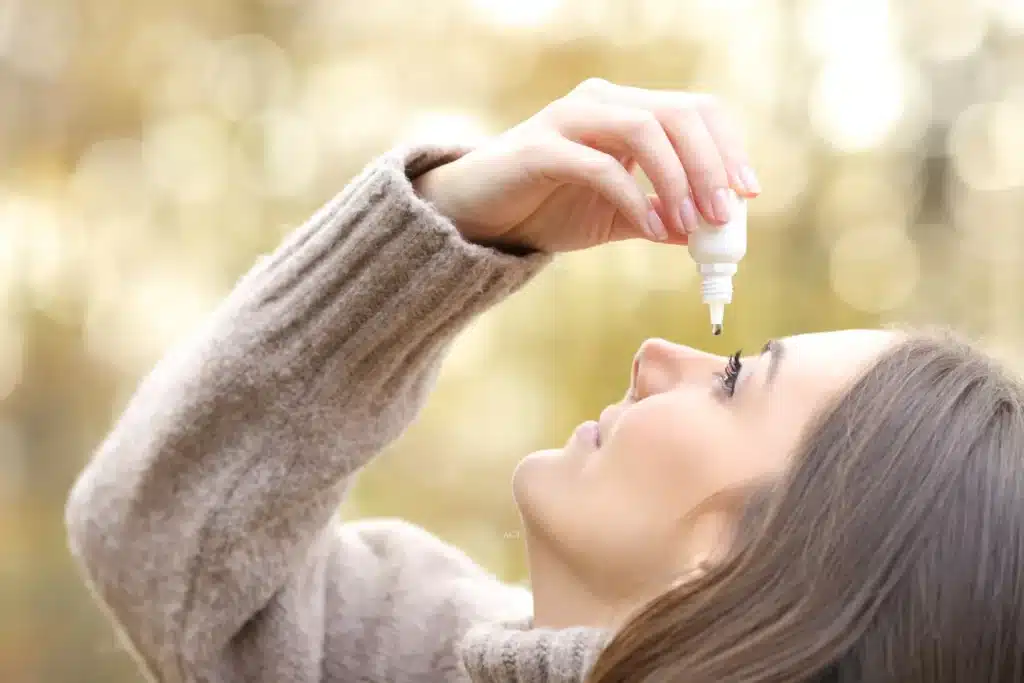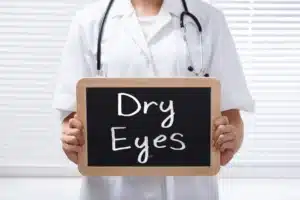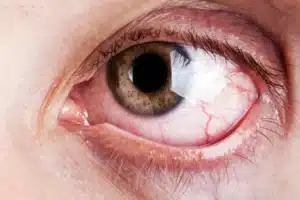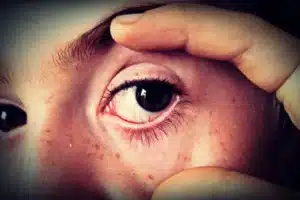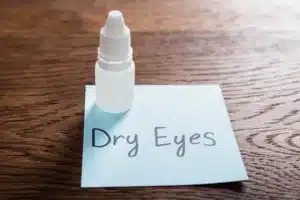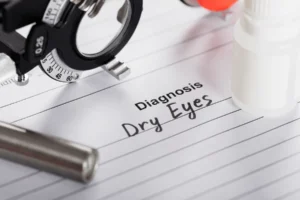The eyes work in astonishing ways to give us the miracle of sight. The cornea and lens (front of the eye) focuses light into the retina (back of the eye), which transfers the light into an electrical signal and sends it to the brain via the optic nerve where it’s converted into the image we see.
Of course, there are a lot of things that factor into that process and anyone’s inconsistency or abnormality can result in impaired vision or vision loss. This is true with every structure of the eye, including the cornea, lens, iris, pupil, sclera, vitreous, retina, eyelid, and eyelashes.
One factor that many patients often forget about are natural tears. In fact, most people don’t truly appreciate the role and responsibility tears play in your overall eye health. That is, of course, until your eyes lack the number of quality tears. Only then will you understand their importance.
What Are the Most Common Causes of Dry Eyes?
Dry eye disease is a serious eye condition that affects millions of people every year. It occurs when the eyes don’t produce enough quality tears, which results in inflammation and eye damage. If not treated in a timely manner, the damage will only continue to get worse over time.
Normal tears are made up of water, oils, mucus, and antibodies. A thin layer of tear film is produced every time you blink. This helps lubricate and protect the eye, but also cleans and smooths the surface of the eye – allowing light to refract properly. Without this tear film, clear vision wouldn’t exist.
There are two common causes of dry eyes – reduced tear formation and increased tear evaporation. Let’s take a closer look at each one!
Reduced Tear Production
There are several glands that work together to produce tears. The meibomian glands produce the oily layer, the lacrimal glands produce the water layer, and the conjunctiva produces the mucus layer. Unfortunately, production tends to decrease as part of the normal aging process.
For example, keratoconjunctivitis sicca is when the eyes don’t produce enough water (also known as aqueous fluid). Reduced tear production means your eyes don’t have an adequate amount of tears to properly protect and lubricate the eye. Over time, this will cause damage.
Increased Tear Evaporation
The second most common cause of dry eye disease is increased tear evaporation. This occurs when your eyes are producing enough tears, but those tears evaporate too quickly – usually due to the tears being of poor quality. There are several reasons why this might happen.
For example, blocked or clogged meibomian glands won’t produce enough oil and will result in tears evaporating too quickly. Other causes of increased tear evaporation include not blinking enough, posterior blepharitis, eye allergies, eyelid issues, or exposure to wind, smoke, or dry air.
Risk Factors & Complications of Dry Eyes
As we learn more about dry eye disease and why it occurs in certain individuals, there are several patterns and consistencies that come into play. For example, we know that dry eyes are far more common in women, especially if they’re experiencing hormonal changes.
We also know that people over the age of 50 are at risk because tear production naturally begins to slow down as we age. Other risk factors include those with a Vitamin A deficiency, people that wear contact lenses, anyone who had refractive surgery, and taking certain medications.
If not treated properly or in a timely manner, dry eyes can result in a number of complications that put your eye health and vision in danger. Some common complications include eye infections, damage to the surface of the eye, inflammation, vision impairment, and vision loss.
Symptoms of Dry Eyes
They often say that early detection is the best prevention. By understanding the symptoms of dry eye disease, you and your ophthalmologist can detect the condition in its early stages. This not only sets you up for effective treatment but could help preserve your vision long-term.
Let’s take a look at some of the most common dry eye symptoms:
- Eyes that burn, itch, or sting
- Stringy mucus around the eye
- Red or watery eyes
- Light sensitivity
- Blurry vision or eye fatigue
- The feeling of having something in your eye
If you experience any of these symptoms, you should contact your eye doctor right away. They’ll perform a number of tests to analyze your eye health and properly diagnose the condition. Once diagnosed, they can formulate a safe and effective treatment plan for you.
How to Prevent Dry Eyes
Treatment for dry eyes often includes a combination of eye drops (artificial tears), supplements, warm compresses, ointments, and surgery. Of course, the main goal is to avoid dry eyes altogether. Don’t worry, we have a variety of useful tips to help you prevent dry eye disease.
Let’s take a look:
Blink regularly, especially when reading or staring at a screen
- Increase the humidity in your home or workplace
- Wear wraparound sunglasses when it’s sunny or windy out
- Make sure you’re eating enough essential fatty acids (Omega-3s)
- Drink plenty of water throughout the day
- Avoid having wind or air blown directly on the eyes
- Try your best to avoid dry environments
- Utilize artificial tears (eye drops)
By following these prevention tips, you can put your eyes and tears in a position to succeed. After all, preserving our wonderful gift of sight is one of the most important things in this world. The more you care for your eye health, the more your eyes will continue to reward you!
Contact Milwaukee Eye Surgeons Today!
Dry eye disease can be devastating to your vision and overall eye health, especially when it’s not detected, diagnosed, and treated in a timely manner. That’s why you should always schedule your annual eye exam with your ophthalmologist. It could help save your vision.
If you’re experiencing symptoms of dry eye disease or it’s been a while since you last visited your eye doctor, don’t hesitate to schedule an appointment with Milwaukee Eye Surgeons. We proudly serve the Milwaukee community and can’t wait to help preserve your vision long-term?

